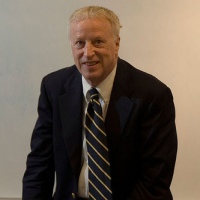About

George A. Akerlof
George A. Akerlof WF ’62, Nobel Laureate in Economics; Koshland Professor of Economics, University of California at Berkeley
As a junior faculty member, George Akerlof realized that traditional economics alone could not explain all economic transactions. His insightful early work led to his 2001 Nobel Prize. Creativity and interdisciplinary breadth have been his signature ever since.
Now Koshland Professor of Economics at UC-Berkeley, Dr. Akerlof wrote his landmark paper “The Market for Lemons” in 1966–67, his first year on Berkeley’s economics faculty. He argued that, when a seller knows more than a buyer about the quality of goods (as with a “lemon” on the used-car market), this asymmetry can make the market collapse. One journal called the paper “trivial.” Another concluded that, were he correct (and he could not possibly be), “economics would be different.”
Finally published in 1970, the paper spurred a new understanding of asymmetrical markets that garnered Dr. Akerlof the Nobel 31 years later, along with Michael Spence of Stanford and Joseph Stiglitz of Columbia. The latter had been his doctoral classmate at M.I.T., during an era he calls “a great deal of fun.”
“The Woodrow Wilson Fellowship allowed me to go to M.I.T. and be financially well supported, no small thing,” he says.
Since childhood, Dr. Akerlof explains, he had been interested in unemployment, which haunted his family during the 1950’s as his father moved between jobs in chemistry. Considering what unemployment in one family could mean for all families led him to the basics of Keynesian economics. “In some sense,” he writes, “I began work on unemployment theory when I was 12.”
Photo: Yan Chi Vinci Chow (http://www.flickr.com/photos/ticoneva/444805175/) [CC-BY-3.0 (http://creativecommons.org/licenses/by/3.0)], via Wikimedia Commons

